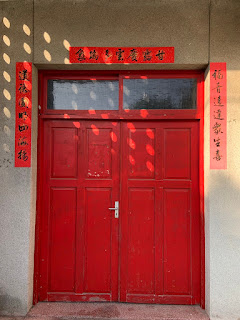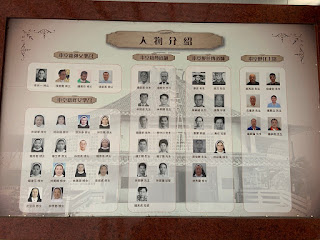Chúi-bé (水尾) parish is in Lunbei, Yunlin County. The entire village is surnamed Chung and catholic. So this small parish is like their family church. Even the current archbishop of Taipei is from this parish!
It was founded by a local couple who were lay catechists. Lay catechists are important!
In nearby village of Chhiú-á-kha (樹仔腳;饒平), there is also a prominent parish that produced a lot of vocations.
In the churchyard, there's a big open space for pān-toh. It must seldom rain here!
Thank you, Fr Chang Chin-chen, for your warm hospitality!







